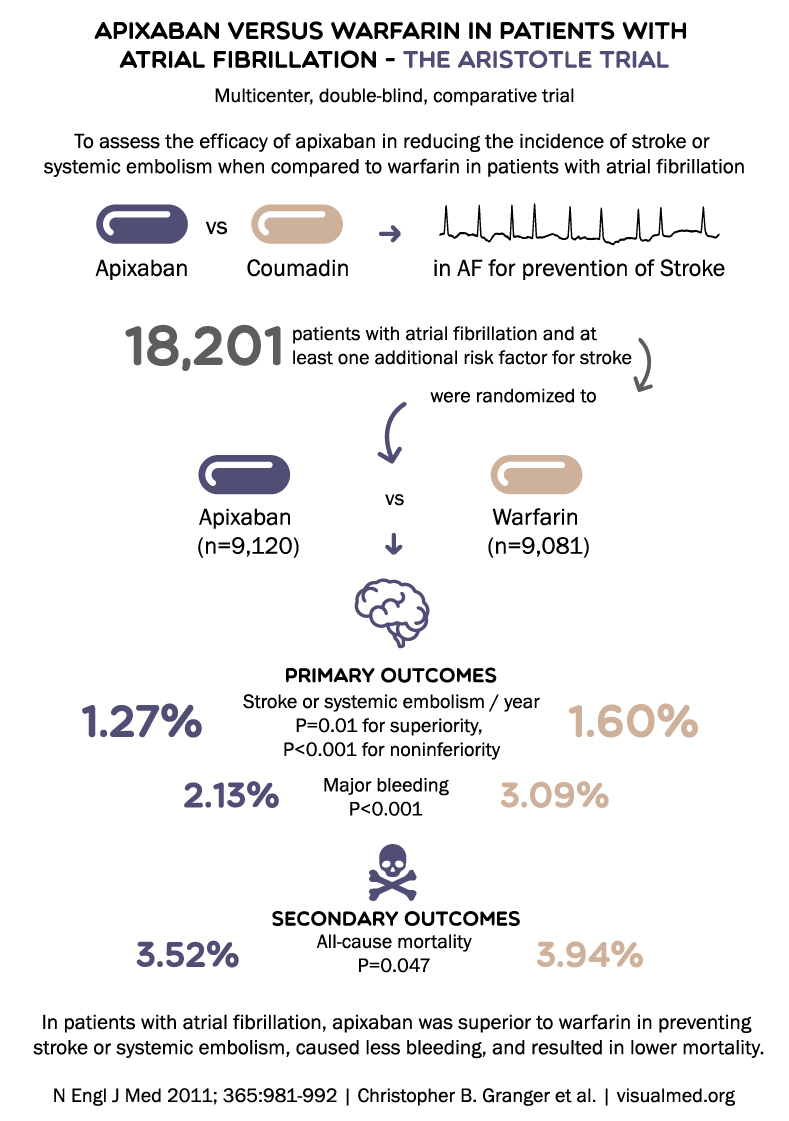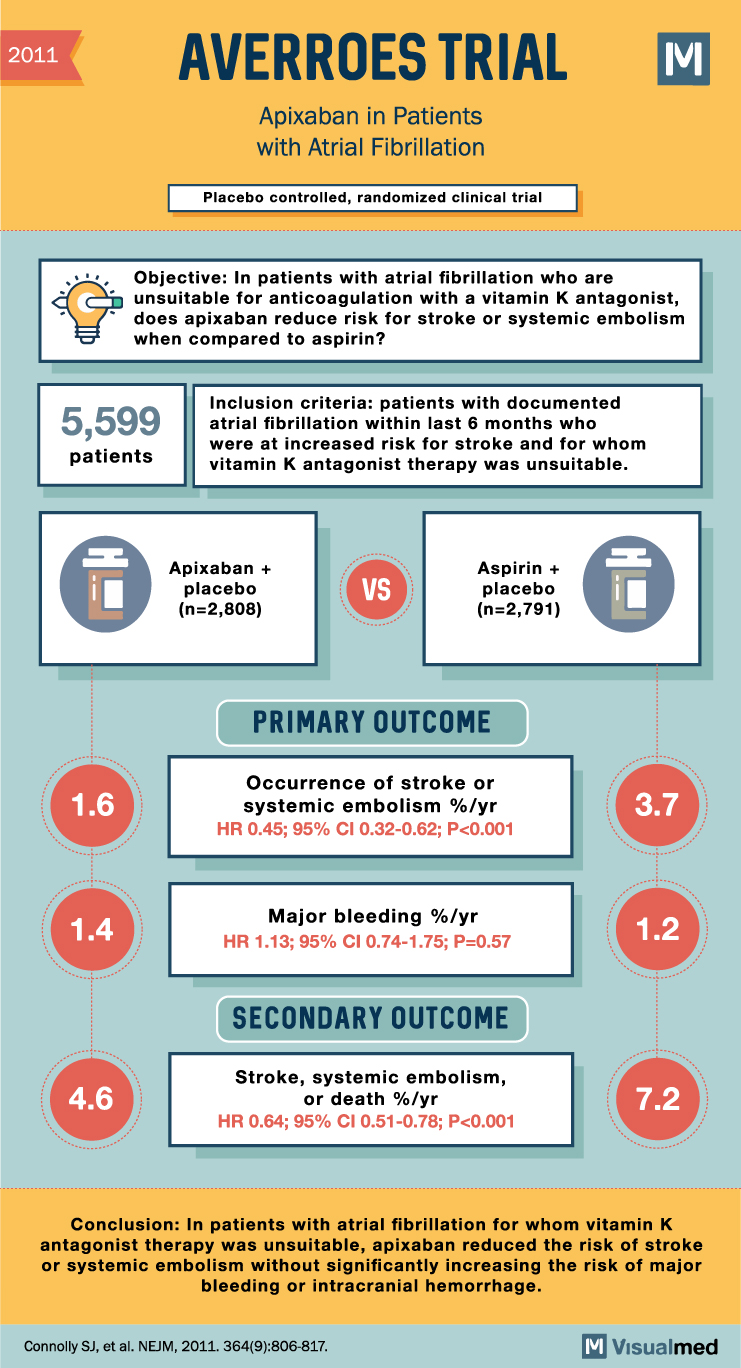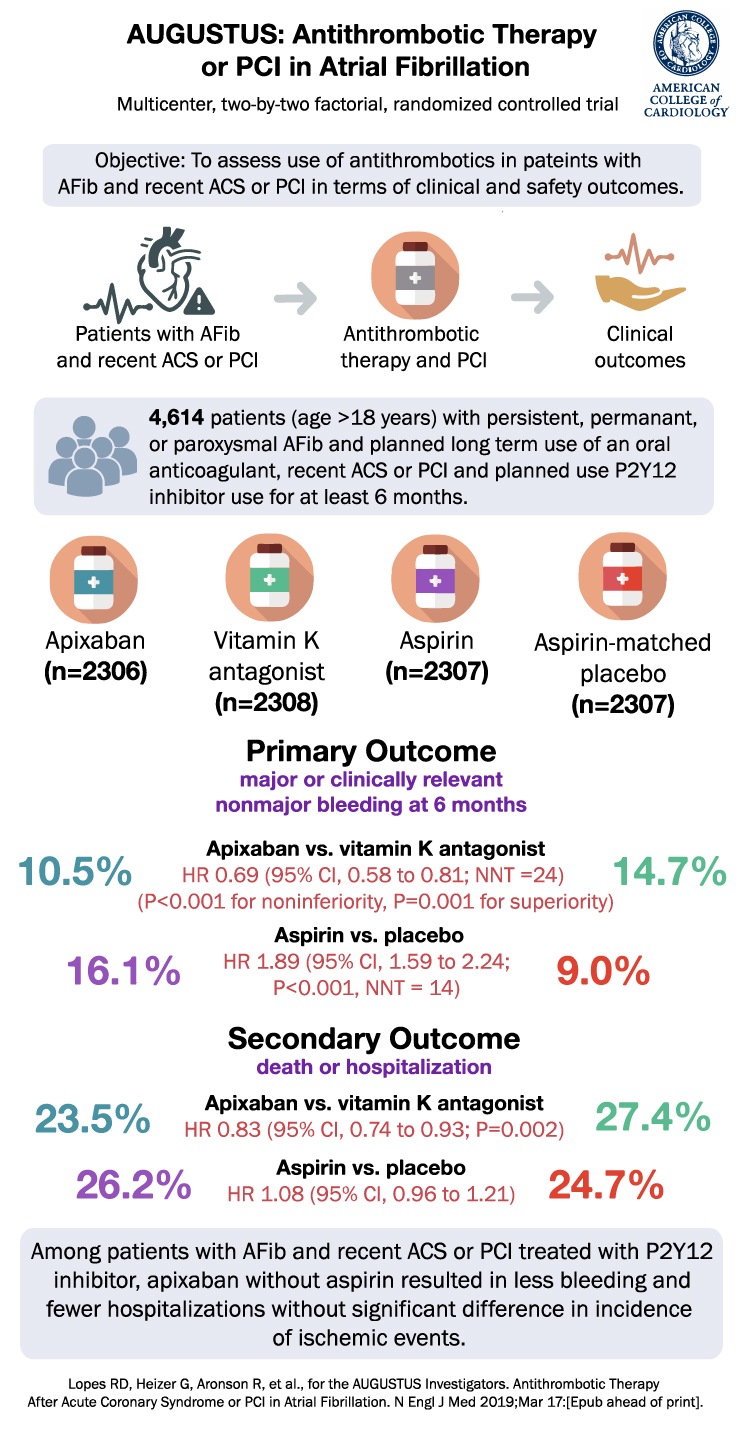Atrial fibrillation (AFib) is a prevalent cardiac arrhythmia that significantly elevates the risk of stroke and systemic embolism. As a result, effective anticoagulation therapy is crucial for managing AFib patients. Over the past decade, novel oral anticoagulants (NOACs) have challenged traditional vitamin K antagonists, like warfarin, as preferred therapeutic options. Eliquis (apixaban) is one such NOAC that has revolutionized the landscape of anticoagulation therapy in AFib patients. In this comprehensive article, we delve into the landmark clinical trials that have informed and shaped the use of Eliquis in the management of AFib.
1. Apixaban for Reduction in Stroke and Other Thromboembolic Events in Atrial Fibrillation (ARISTOTLE) (2011)

The groundbreaking ARISTOTLE trial was designed to compare the efficacy and safety of Eliquis (apixaban) with warfarin in patients diagnosed with non-valvular AFib. The primary outcome measured was a composite of stroke and systemic embolism events.
Results from the ARISTOTLE trial revealed that Eliquis was superior to warfarin in the prevention of stroke and systemic embolism while also exhibiting a reduced risk of major bleeding and all-cause mortality. This influential study played an indispensable role in establishing Eliquis as a preferred anticoagulant for AFib patients.
2. Apixaban Versus Acetylsalicylic Acid to Prevent Stroke in Atrial Fibrillation Patients Who Have Failed or Are Unsuitable for Vitamin K Antagonist Treatment (AVERROES) (2011)

The AVERROES trial aimed to compare Eliquis (apixaban) with aspirin in AFib patients deemed unsuitable for or unable to tolerate vitamin K antagonist therapy. The primary outcome assessed was the occurrence of stroke or systemic embolism.
The AVERROES trial demonstrated that Eliquis significantly mitigated the risk of stroke and systemic embolism in comparison to aspirin, while maintaining a similar risk of major bleeding. This study broadened the potential use of Eliquis in AFib patients who could not tolerate or did not respond favorably to traditional anticoagulant therapy.
3. Apixaban in Patients with Atrial Fibrillation and Prior Coronary Artery Disease Undergoing Percutaneous Coronary Intervention (AUGUSTUS) (2019)

The AUGUSTUS trial investigated the safety and efficacy of Eliquis (apixaban) in combination with a P2Y12 inhibitor (such as clopidogrel) in contrast to vitamin K antagonists plus dual antiplatelet therapy (DAPT) in AFib patients with a history of coronary artery disease undergoing percutaneous coronary intervention (PCI). The primary outcomes included major or clinically relevant non-major bleeding and a composite of death or hospitalization.
The results of the AUGUSTUS trial indicated that the combination of Eliquis and a P2Y12 inhibitor substantially reduced the risk of bleeding compared to the vitamin K antagonist plus DAPT group. Furthermore, Eliquis was associated with a lower rate of death or hospitalization. This study helped establish the role of Eliquis in AFib patients undergoing PCI.
4. Efficacy and Safety of Apixaban Compared with Warfarin at Different Levels of INR Control for Stroke Prevention in Atrial Fibrillation (ARISTOTLE-INR Substudy) (2014)
The ARISTOTLE-INR Substudy was an analysis of the ARISTOTLE trial data to evaluate the efficacy and safety of Eliquis (apixaban) compared with warfarin at various levels of international normalized ratio (INR) control in patients with non-valvular AFib. The primary outcomes were the same as those in the original ARISTOTLE trial.
The results of the ARISTOTLE-INR Substudy revealed that the benefits of Eliquis over warfarin were consistent across the entire spectrum of INR control. This important finding reinforced the role of Eliquis as a preferred anticoagulant, offering consistent protection against thromboembolic events in AFib patients regardless of INR control quality.
Conclusion
Landmark clinical trials, such as ARISTOTLE, AVERROES, AUGUSTUS, and the ARISTOTLE-INR Substudy, have significantly contributed to the growing understanding and implementation of Eliquis (apixaban) as a leading anticoagulant therapy for patients with atrial fibrillation. These trials have demonstrated the advantages of Eliquis over traditional therapies in terms of efficacy, safety, and improved clinical outcomes.
As the field of anticoagulation therapy continues to evolve, future clinical trials will likely refine our understanding of Eliquis’ role in AFib management and explore its potential applications in other patient populations. By building upon the knowledge gained from these landmark trials, healthcare providers can optimize anticoagulation strategies and improve patient outcomes for those affected by atrial fibrillation.